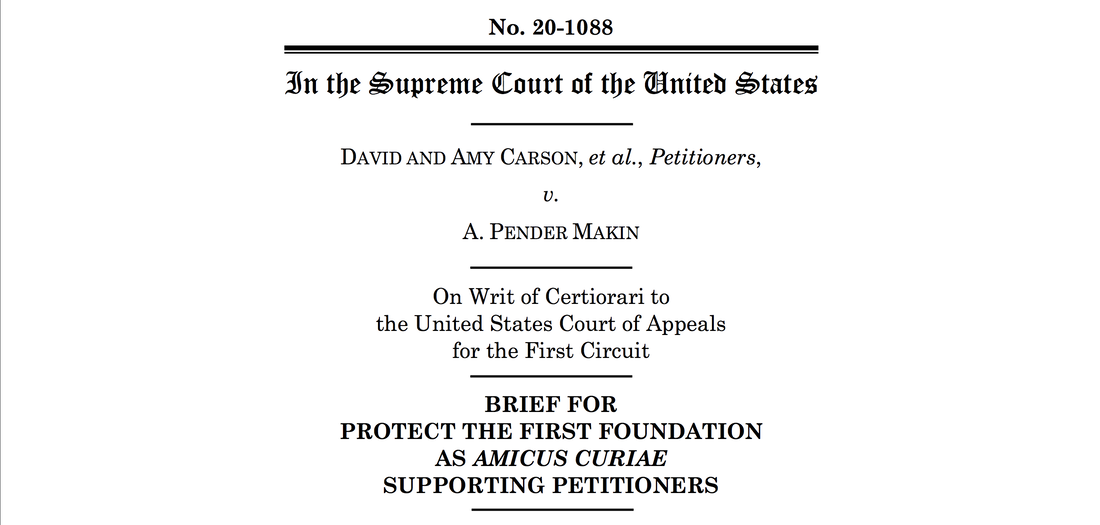|
The Supreme Court heard oral argument in Carson v. Makin this morning. During the argument, Michael Bindas, the lead attorney for a group of Maine parents, batted back one hard question after another.
What is this case about? Maine refuses to allow parents who qualify for tuition assistance programs to use their funds to send their children to religious schools that meet state education certification standards if they also impart religious teachings and hold religious activities. So a parent could theoretically accept funding for a “Catholic” school, provided it is Catholic in name only. Even one Bible class or the administration of communion to its students would render a school ineligible to participate in the program. This case asks whether that system violates the Religion Clauses of the First Amendment. Earlier this year, Protect the 1st argued that it did. Several Justices asked whether, if petitioners won, it would amount to a state subsidy of religious schools. Bindas noted that the money only goes to parents, who then decide where they send their children. Justice Clarence Thomas added later that Maine – like all states – makes school attendance compulsory, and that in some rural areas the only option is a religious school. When asked whether Maine would fund a school that teaches in science class that evolution is a lie, Bindas replied that religious schools must meet Maine’s standards of education – and that the Maine Legislature can require the teaching of evolution in science classes. When he was asked whether these schools discriminate against students on the basis of gender, sexuality or race, Bindas replied that all religious schools practice “inclusion and diversity through the lens of faith.” Such difficult questions took up a lot of time at the argument. What about the First Amendment, which forbids the establishment of a religion? Wouldn’t state funds to these schools constitute a violation of the Establishment Clause? No. Bindas told the Justices that the real affront to the Constitution is allowing a regulator in Augusta, Maine, to review schools’ curriculum and decide if a school is “sufficiently irreligious or too religious.” We agree. Maine’s decision to deny access to public funding based on that school’s religious beliefs, according to the sensibilities of a regulator, violates the Constitution. Based on how the Justices reacted to the arguments made today, we believe the Court will invalidate Maine’s discriminatory system. If they do, it will be a significant win for religious liberty. Comments are closed.
|
Archives
June 2024
Categories
All
|
ABOUT |
ISSUES |
TAKE ACTION |



 RSS Feed
RSS Feed